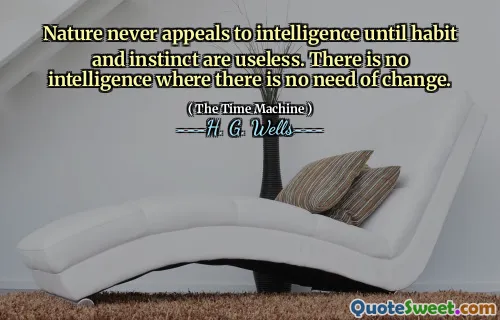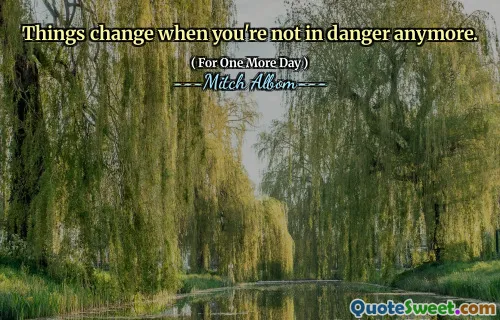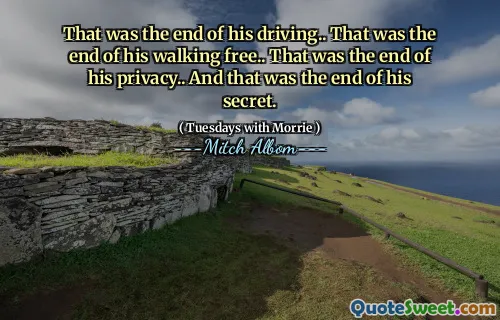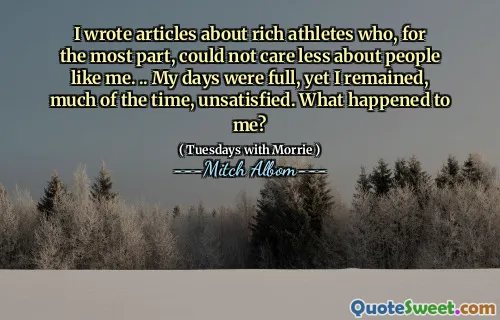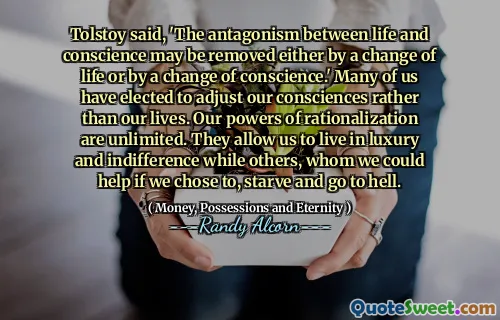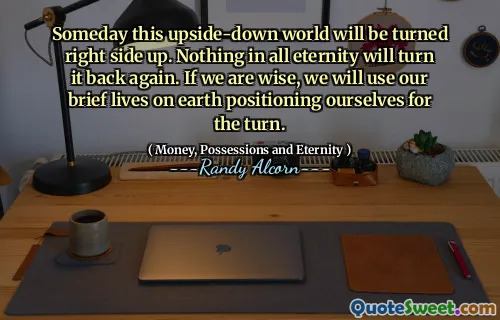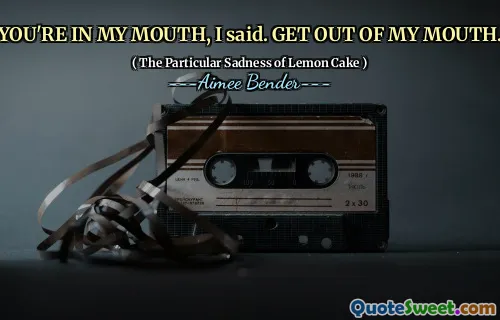
It is a law of nature we overlook, that intellectual versatility is the compensation for change, danger, and trouble. An animal perfectly in harmony with its environment is a perfect mechanism. Nature never appeals to intelligence until habit and instinct are useless. There is no intelligence where there is no change and no need of change. Only those animals partake of intelligence that have a huge variety of needs and dangers.
In "The Time Machine," H. G. Wells emphasizes that adaptability and intelligence are essential for survival, particularly in changing and challenging circumstances. He suggests that animals that thrive in stable environments rely on instinct rather than intellect. When faced with dangers or the need for change, it is the animals that can think creatively and respond to varied needs that develop intelligence. This highlights a fundamental principle of nature: the relationship between adaptability and the evolution of intellect.
Wells argues that as environments become more complex and unpredictable, the reliance on instinct diminishes while the necessity for intellectual versatility increases. This law of nature underscores the idea that intelligence emerges not in the absence of challenges but in the presence of diverse circumstances that require innovative responses. Thus, the ability to think and adapt becomes a crucial factor for survival in a world full of change and uncertainty.
